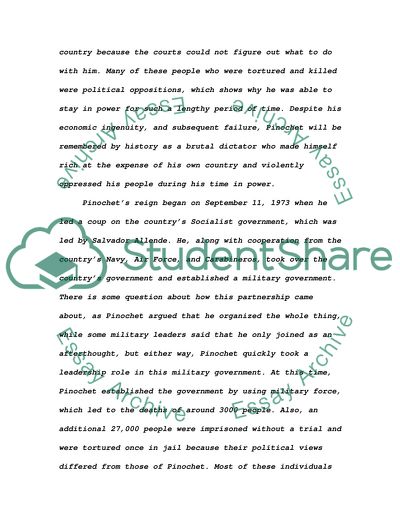Cite this document
(August Jose Ramon Pinochet Ugarte Assignment Example | Topics and Well Written Essays - 3250 words, n.d.)
August Jose Ramon Pinochet Ugarte Assignment Example | Topics and Well Written Essays - 3250 words. https://studentshare.org/history/1713527-introduction-to-international-law
August Jose Ramon Pinochet Ugarte Assignment Example | Topics and Well Written Essays - 3250 words. https://studentshare.org/history/1713527-introduction-to-international-law
(August Jose Ramon Pinochet Ugarte Assignment Example | Topics and Well Written Essays - 3250 Words)
August Jose Ramon Pinochet Ugarte Assignment Example | Topics and Well Written Essays - 3250 Words. https://studentshare.org/history/1713527-introduction-to-international-law.
August Jose Ramon Pinochet Ugarte Assignment Example | Topics and Well Written Essays - 3250 Words. https://studentshare.org/history/1713527-introduction-to-international-law.
“August Jose Ramon Pinochet Ugarte Assignment Example | Topics and Well Written Essays - 3250 Words”. https://studentshare.org/history/1713527-introduction-to-international-law.


